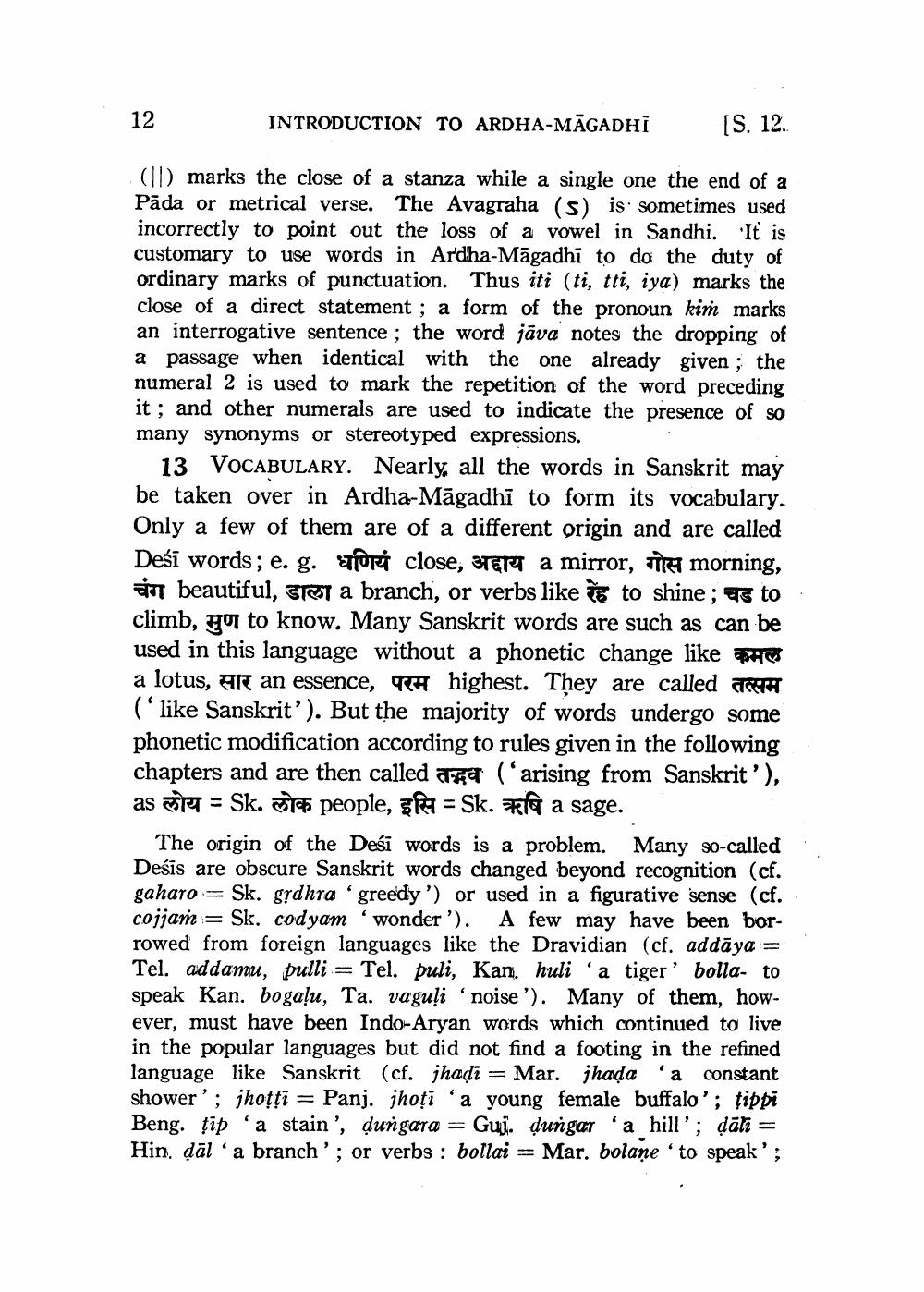________________
12
INTRODUCTION TO ARDHA-MĀGADHI
(S. 12.
(ID) marks the close of a stanza while a single one the end of a Pāda or metrical verse. The Avagraha (s) is sometimes used incorrectly to point out the loss of a vowel in Sandhi. It is customary to use words in Ardha-Māgadhi to do the duty of ordinary marks of punctuation. Thus iti (ti, tti, iya) marks the close of a direct statement ; a form of the pronoun kim marks an interrogative sentence; the word jāva notes the dropping of a passage when identical with the one already given; the numeral 2 is used to mark the repetition of the word preceding it ; and other numerals are used to indicate the presence of so many synonyms or stereotyped expressions.
13 VOCABULARY. Nearly all the words in Sanskrit may be taken over in Ardha-Māgadhī to form its vocabulary. Only a few of them are of a different origin and are called Deśī words; e. g. ori close, ser a mirror, the morning, i beautiful, sro a branch, or verbs like me to shine ; 7 to climb, yor to know. Many Sanskrit words are such as can be used in this language without a phonetic change like the a lotus, ar an essence, qe highest. Tủey are called TH ('like Sanskrit'). But the majority of words undergo some phonetic modification according to rules given in the following chapters and are then called aga l'arising from Sanskrit '), as लोय = Sk. लोक people, इसि = Sk. ऋषि a sage..
The origin of the Desi words is a problem. Many so-called Deśīs are obscure Sanskrit words changed beyond recognition (cf. gaharo = Sk. gìdhra 'greedy') or used in a figurative sense (cf. cojjam = Sk. cod yam 'wonder '). A few may have been borrowed from foreign languages like the Dravidian (cf. addāya = Tel. addamu, pulli = Tel. puli, Kan, huli 'a tiger' bolla- to speak Kan. bogaļu, Ta. vaguli 'noise'). Many of them, however, must have been Indo-Aryan words which continued to live in the popular languages but did not find a footing in the refined language like Sanskrit (cf. jhaời = Mar. jhada 'a constant shower'; jhoțți = Panj. jhoți 'a young female buffalo'; ţippi Beng. tip 'a stain', dungara = Gui. dungar 'a hill'; dāli = Hin, dal'a branch'; or verbs: bollai = Mar. bolane 'to speak';




